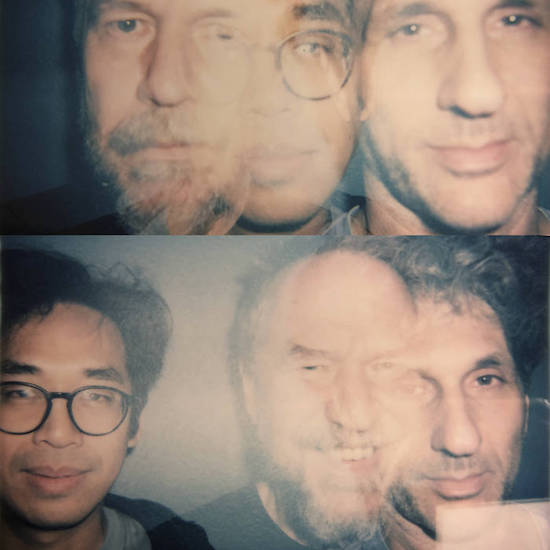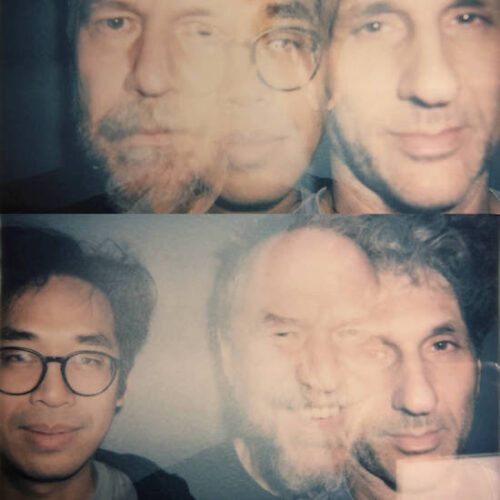A little while back I wrote about 75 Dollar Bill’s third album I Was Real, which remains as slippery to define and wonderful as I found it then. Here we have three volumes of live music from their residency at Troost café in Greenpoint. The duo (Rick Brown and Che Chen) say that these residencies were formative in terms of the seeds that eventually spawned their studio releases. They would be fascinating documents, for that alone. While it must be acknowledged that this won’t be everybody’s cup of tea, I find these to also be hugely satisfying, challenging, and brilliantly playful recordings.
Volume 1 features Brooklyn born improvisor and electronic experimentalist Barry Weisblat on electronics, percussion and Casio SK1 (just one of my favourite things ever). The content veers from the brief, slight, and charming ‘Bell Song’ through the twelve or so minutes of noise driven quasi minimalism of ‘Repeater’ which deploys processed bowing that is so awash with overtones as to arrive in some tonal-atonal middle ground where timbre is so complex that it fairly starts to unravel the brain. The repetition of the track meets an eventual groove that seems to find a rigid order from the seemingly chaotic. It’s pretty wonderful. ‘Point Turned’ then turns sharply away toward something that seems to come from the blues, which in context feels both perverse and weirdly congruent. Such is the skill of this pair of musicians. They seem able to exist within, without, and beyond such tawdry restraints as genre rules. There is always something particularly exciting about hearing musicians excelling at something that most others would fail to get right.
While we might put 75 Dollar Bill loosely in the category of ‘experimental rock’, I think perhaps they have more in common with those American composers that we more readily associate with ‘art music’. We might find accord with La Monte Young, Harry Partch, or even George Crumb. More so in fact, than we might with other rock or post-rock acts. There is a wildness, and playfulness, and a knowledge that makes those composers so attractive, and 75 Dollar Bill have just these things. If you take the single track of Volume 2, titled ‘XIXIXIXIXIXIX’, featuring the brilliant experimental guitarist and piper David Watson on various bagpipes and home-made reed instruments, we find a reed-driven piece that over its duration somehow references a host of the folk and jazz origins that informed so much of the music that we might think of as explicitly American. It also, through its performance and the nature of the instruments, more than hints at the microtonal explorations of Partch and his heirs. Even within this, there are extended periods of comfortable and relatable groove. For a pretty long piece, it is exceptionally tasteful and almost flawlessly judged. As we get to the final third of the track, we start to delve into recognisable pipe music which remains troubled by microtones, glissandos, and curious intervals that demolish the trad sensibilities even as they invoke them. I properly love this.
Volume 3 feels like the after-party. It is a series of covers (Harry Partch, Pauline Oliveros, Dolly Parton, Bob Dylan, Yoko Ono, amongst others). There are lots of guests here, fevered vocals and a spontaneous audience ‘choir’. These are not faithful covers and the music lurches and sprints around in a barely contained frenzy. It feels a fitting climax to the set of recordings on offer. There is across these three releases a genuine sense of virulent fun and just-about-contained exuberance. I think it really captures something of the joy of musicianship, and the tremendous skill it takes to make improvised music. Absolutely worth your time – especially perhaps Volume 2, which is my highlight so far of this new year. Magnificent stuff from a phenomenal duo.



